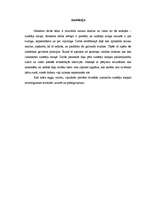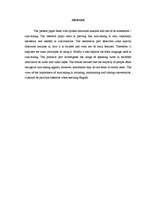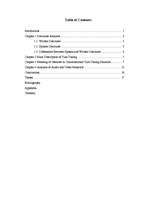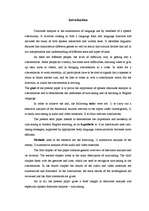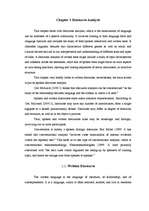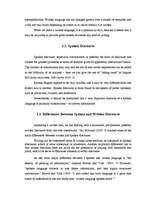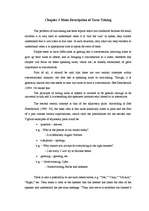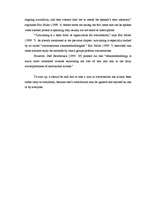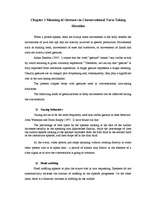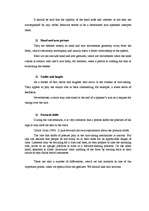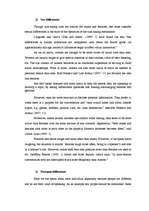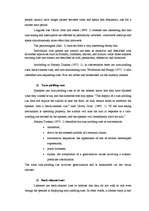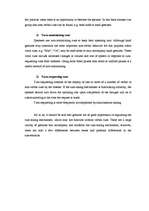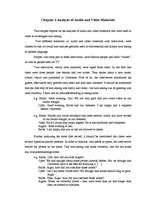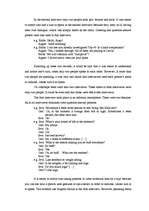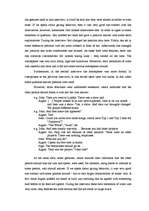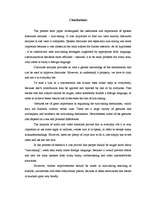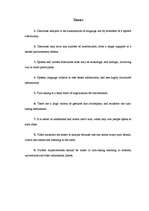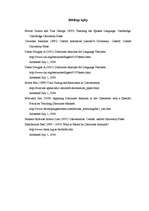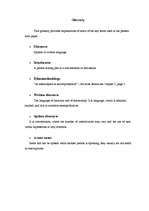-
Spoken Discourse Analysis: Turn-Taking
| Nr. | Chapter | Page. |
| Introduction | 1 | |
| Chapter 1 | Discourse Analysis | 2 |
| 1.1. | Written Discourse | 2 |
| 1.2. | Spoken Discourse | 3 |
| 1.3. | Differences Between Spoken and Written Discourse | 3 |
| Chapter 2 | Main Description of Turn-Taking | 5 |
| Chapter 3 | Meaning of Gestures in Conversational Turn-Taking Situation | 7 |
| Chapter 4 | Analysis of Audio and Video Materials | 12 |
| Conclusions | 16 | |
| Theses | 17 | |
| Bibliography | 17 | |
| Appendix |
Discourse analysis is the examination of language use by members of a speech community. It involves looking at both a language form and language function and includes the study of both spoken interaction and written texts. It identifies linguistic features that characterize different genres as well as social and cultural factors that aid in our interpretation and understanding of different texts and types of talks.
As there are different people, the level of difficulty vary in getting into a conversation. Some people do it easily, but some have difficulties, knowing when to give up their turns to others, and in bringing conversation to a close. In order for a conversation to work smoothly, all participants have to be alert to signals that a speaker is about to finish his/her turn, and be able to come in with a contribution which fits the direction, in which the conversation is moving.
The goal of the present paper is to prove the importance of spoken discourse analysis in conversation and to demonstrate the usefulness of turn-taking and its teaching in English language.
In order to achieve the aim, the following tasks were set: 1) to carry out a selective analysis of the theoretical sources relevant to the topics under investigation; 2) to study turn-taking in audio and video materials; 3) to draw relevant conclusions.
The present term paper intends to demonstrate the importance and necessity of turn-taking in modern English teaching, as its hypothesis is: if an interlocutor uses turn-taking strategies, supported by appropriate body language, communication becomes more efficient.…
The present paper deals with spoken discourse analysis and one of its subthemes – turn-taking. The research paper aims at proving that turn-taking is very important, necessary and needed in conversation. The theoretical part describes what exactly discourse analysis is, how it is divided and what are its main features. Therefore, it explores the main principles of using it. Briefly it also depicts the body language used in turn-taking. The practical part investigates the usage of speaking turns in recorded interviews on audio and video tapes. The results showed that the majority of people often recognize turn-taking signals, however, sometimes they do not seem to notice them. The view of the importance of turn-taking in initiating, maintaining and closing conversation, it should be paid due attention when teaching English.

